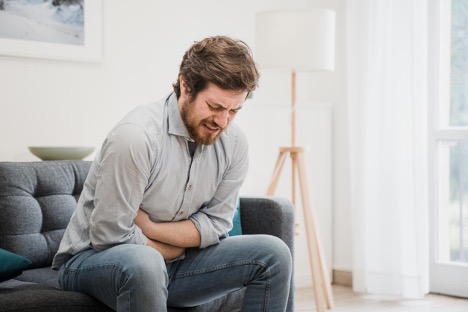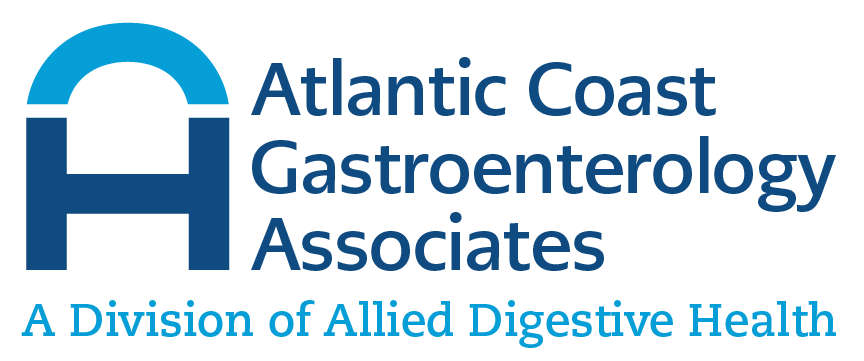
- October 13, 2022
What Causes Stomach Ulcers?
Though the prevalence of stomach ulcers (peptic ulcer disease (PUD)) has been declining over the years, it still affects many people in the United States and globally. According to studies, the condition affects about 8.4% of the global population aged between 17 and 82 years. In the United States, stomach ulcer prevalence is about 10%, affecting 4.5 million people annually.
While PUD afflicts people across all age brackets, the incidents increase with age, especially after hitting 50+ years. In this post, we look into PUD, including what causes stomach ulcers, types, causes, risk factors, symptoms, and treatment. Continue reading for this and more information.
What Are Ulcers?
Ulcers (peptic) are sores that develop in the lining of the stomach or duodenum (upper small intestine). They occur when the mucus lining the digestive tract thins out, causing gastric acid to eat away at the stomach and duodenal walls. Once the sores form, further release of digestive acid and other ingested acidic substances aggravates the discomfort.
Left untreated, stomach ulcers can cause severe complications, including;
– Internal bleeding
– Perforation (hole in the stomach or intestinal wall)
– Obstruction (blocking food from flowing into the small intestine)
– Stomach cancer
The main types of peptic ulcer disease are gastric and duodenal ulcers.
– Gastric – Develop on the stomach lining and are most prevalent among people aged 50+ years. They comprise about 15% of peptic ulcers and are less related to H. pylori infection than duodenal ulcers.
– Duodenal – Develop on the first part of the small intestine (duodenal wall) and are prevalent among 30-60-year-olds. They comprise about 80% of peptic ulcers with a male/female ratio of 2-3:1.
There’s also another type of PUD, albeit rare, known as an esophageal ulcer. This develops above the stomach in the esophagus.
Symptoms of a Peptic Ulcer
Small ulcers may fail to show any symptoms. These are often known as silent peptic ulcers. But when the sores start causing discomfort, the most common symptom is stomach pain. The pain gives a burning feeling inside the stomach, usually between the breastbone and the belly button.
Some people experience pain when the stomach is empty, i.e., between meals and during the night, which may go away temporarily when you take an antacid or certain foods with an acid-neutralizing effect.
Other symptoms include:
– Indigestion
– Bloated feeling
– Lack of appetite
– Nausea and vomiting
– Burping
– Intolerance to fatty foods
– Poor appetite
– Unexplained weight loss
As earlier mentioned, a peptic ulcer could also cause bleeding in the stomach or small intestine due to a broken vessel. This often manifests as blood in the stool or vomit and is an emergency that should be addressed immediately.
Common Causes of Stomach Ulcers
Stomach ulcers (sores in the stomach wall) occur when the stomach acid damages the mucus layer and eats away at the stomach wall. There are numerous causes, the most common being Helicobacter pylori (H. pylori) and nonsteroidal anti-inflammatory drugs (NSAIDs).
H. Pylori Infection
The bacteria is present in many people’s stomachs. However, not everyone with H. pylori develops stomach ulcers as the gut immune system keeps them in check. But overgrowth of the bacteria raises the amount of acid in the stomach and damages the mucus lining the digestive tract.
Overusing Nonsteroidal Anti-Inflammatory Drugs (NSAIDs)
NSAIDs (over-the-counter pain relievers such as aspirin, naproxen, ibuprofen, etc.) block the enzymes that promote pain, inflammation, fever, and swelling. One of these enzymes also produces a chemical that protects the stomach and duodenal walls from stomach acid. As a result, taking NSAIDs for too long predisposes one to develop ulcers.
Zollinger-Ellison Syndrome
This is a rare disorder caused by the presence of one or multiple tumors in the pancreas and duodenum. The tumors trigger the release of excess gastrin, which then cause the stomach to release more gastric acid, damaging the mucus and the digestive tract walls.
Extreme Physiological Stress
Severe stress to the body, either caused by injuries or illness, can imbalance its PH, leading to increased stomach acid.
Besides the above factors, there are numerous risk factors, which alone cannot cause peptic ulcers, but can predispose one to develop PUD. These include;
– Being above 70 years, female, taking multiple NSAIDs (cause a higher risk of NSAID-induced peptic ulcers)
– Unclean food and water, unclean utensils, and contact with bodily fluids of an infected person like saliva (cause a higher risk of H. pylori-induced peptic ulcers)
In addition to the above risk factors, other issues, such as drinking alcohol, smoking, eating spicy foods, etc., can aggravate the condition and interfere with healing.
Treatments
Left untreated, symptomatic stomach ulcers can cause complications such as internal bleeding, perforation, or obstruction. Thus, treatment is essential to heal the sores and prevent them from deteriorating into life-threatening situations.
Medication is the most common treatment. Once diagnosed, the doctor may administer medicine such as;
– Proton pump inhibitors (e.g., esomeprazole, lansoprazole, pantoprazole, omeprazole, etc.) – Helps reduce acid
– Antibiotics – For H. pylori infection treatment
– Histamine receptor blockers (e.g., cimetidine, ranitidine, famotidine, etc.) – Helps reduce acid
– Cytoprotective agents (sucralfate) – Protective medication that coats the ulcer to stop further damage
If the ulcer is bleeding, the physician may catheterize it or inject substances into the area to halt the bleeding.
With H. pylori-caused ulcers, antibiotics alter the overgrowth and reverse the condition. However, if it’s caused by overusing NSAIDs, you may need to stop using them and switch to another pain reliever or cut down their usage. For Zollinger-Ellison syndrome-induced ulcers, the treatment involves using medication, chemotherapy, or surgery to address the syndrome.
The ulcer should heal after following up with the prescribed treatment. If you don’t get relief, it’s essential to talk to the doctor for a medication change. Ignoring symptoms after treatment could increase the risk of the ulcer becoming malignant.
Note that even after successful treatment, the ulcer can come back. Some of the possible return triggers include factors such as taking NSAIDs and smoking. If you must take NSAIDs, ensure you talk to your doctor to get a recommendation for alternative medication.
Summary: What Causes Stomach Ulcers?
The common causes of stomach ulcers are H. pylori infection and overusing NSAIDs. However, Zollinger-Ellison syndrome also predisposes a patient to stomach ulcers due to the overproduction of gastric acid triggered by the disease. In addition, people with severe physiological stress, either caused by injuries or illness, could also develop stomach ulcers due to increased stomach acid production.
If you or your loved one is suffering from stomach ulcers, reach out to us at Atlantic Coast Gastroenterology Associates for help.
Footer
Quick Links
Locations
Brick Office
732-458-8300Brick Medical Arts Building
1640 Route 88, Suite 202
Brick, New Jersey 08724
Neptune Office
732-776-9300Jersey Shore Medical Arts Building
1944 Corlies Ave. Suite 205
Neptune, New Jersey 07753
Jackson Office
732-928-2300706 Bennetts Mills Road
Jackson, New Jersey 08527
© All Rights Reserved
